- Details
-
Created on Thursday, 12 July 2012 12:29
By the Afro-Middle East Centre
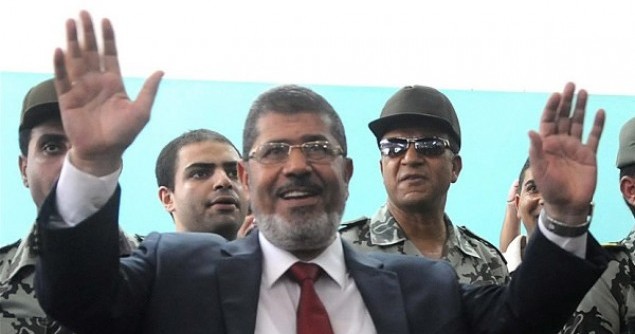 Events of the past few days in Egypt point to a clash within the political elite; it is, however, not likely to be a dramatic confrontation but a slow war of attrition stretching over the next few years. At the heart of the battle is the attempt by the Muslim Brotherhood and Egypt's first democratically-elected president, Muhammad Mursi, to relocate state executive powers within the presidency and legislative powers within the democratically-elected parliament. Events of the past few days in Egypt point to a clash within the political elite; it is, however, not likely to be a dramatic confrontation but a slow war of attrition stretching over the next few years. At the heart of the battle is the attempt by the Muslim Brotherhood and Egypt's first democratically-elected president, Muhammad Mursi, to relocate state executive powers within the presidency and legislative powers within the democratically-elected parliament.
Read more...
|
- Details
-
Created on Sunday, 08 July 2012 16:43
By ‘Izzat Shahrour
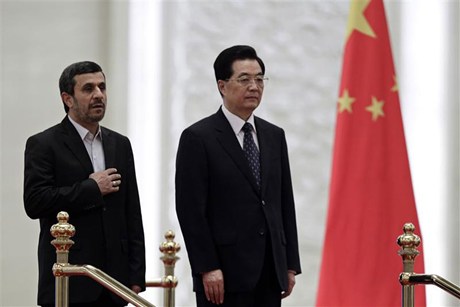 The use of China's veto over the Syrian crisis demonstrates that it no longer needs to sit on the fence on such international issues. In other words, there is no ambivalence on China’s part; it is decisive in its actions and no longer desires to either please everyone or to provoke anyone. China had previously maintained diplomatic relationships with smaller countries in order to gain support against Taiwan at the United Nations, or more generally to defend China against criticism of its human rights record. China is now recognised as an emerging international power especially after it asserted itself as a major economic force. Its strategic interests have changed and with that its relations with other major powers. These developments have effected a change in its policies and diplomatic conduct. The use of China's veto over the Syrian crisis demonstrates that it no longer needs to sit on the fence on such international issues. In other words, there is no ambivalence on China’s part; it is decisive in its actions and no longer desires to either please everyone or to provoke anyone. China had previously maintained diplomatic relationships with smaller countries in order to gain support against Taiwan at the United Nations, or more generally to defend China against criticism of its human rights record. China is now recognised as an emerging international power especially after it asserted itself as a major economic force. Its strategic interests have changed and with that its relations with other major powers. These developments have effected a change in its policies and diplomatic conduct.
Read more...
|
- Details
-
Created on Monday, 25 June 2012 12:36
By Zeenat Sujee
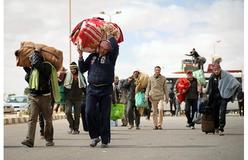
The Middle East and North Africa (MENA) uprisings have brought to the fore numerous human rights issues. Several studies1 have found that a number of countries are not fully compliant in upholding their international obligations - according to the various human rights treaties and conventions. In the MENA region, in particular, many countries have experienced political changes which have had a detrimental effect on the implementation of certain rights, not least of which are the rights of refugees.
Read more...
|
- Details
-
Created on Saturday, 09 June 2012 01:31
By Heidi-Jane Esakov
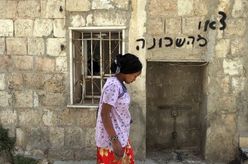 Israeli Knesset member Danny Danon of the ruling Likud Party, who is chairperson of a xenophobic organisation called Deportation Now, recently spoke at a rally inciting the xenophobic riots in Tel Aviv. He said of foreigners, mainly African migrants and refugees: 'The infiltrators are a national plague and we must deport them immediately before it's too late. The Sudanese can go back to Sudan and the rest should be deported to other countries in Africa and eastern Europe.' Israeli Knesset member Danny Danon of the ruling Likud Party, who is chairperson of a xenophobic organisation called Deportation Now, recently spoke at a rally inciting the xenophobic riots in Tel Aviv. He said of foreigners, mainly African migrants and refugees: 'The infiltrators are a national plague and we must deport them immediately before it's too late. The Sudanese can go back to Sudan and the rest should be deported to other countries in Africa and eastern Europe.'
Read more...
|
- Details
-
Created on Friday, 25 May 2012 02:00
By the Afro-Middle East Centre
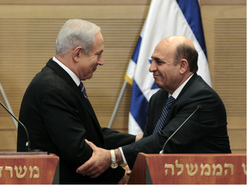 Introduction Introduction
Even Israelis accustomed to the erratic nature of their political system, characterised by often-precarious coalition governments, were stunned to wake up to the news that Israeli Prime Minister Benjamin Netanyahu (Likud) had cancelled the early election he had only just called for. In a surprise move - at least to the public - on 8 May 2012, Netanyahu signed a coalition agreement with Shaul Mofaz (Kadima), who had not only previously called Netanyahu a 'liar' but had vowed never to enter into a coalition with the Prime Minister.
Read more...
|
- Details
-
Created on Wednesday, 02 May 2012 11:53
By AlJazeera Centre for Studies

Sudan's recapture of the oil-rich area of Heglig from South Sudan has restored the relations between the two states to the formerly prevailing fragile balance, one that may erupt once again into conflict. In this round of conflict, the war was waged over an issue of outstanding disagreement centring on oil. Juba is still looking for a route other than that offered by the northern state of Sudan to export its oil wealth, primarily motivated in this quest by domestic issues. Khartoum, on the other hand, has yet to regain its economic balance after the loss of most of its oil wealth in the wake of South Sudan's secession. Behind this conflict about oil revenues lie other sources of unresolved tension that are not any less important. All these issues may serve to threaten the fragile balance between the two states.
Read more...
|
- Details
-
Created on Tuesday, 24 April 2012 01:19
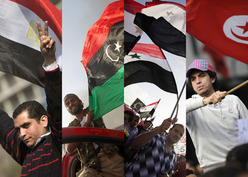
The Afro-Middle East Centre and DAJO Associates invites you to a seminar entitled Birth pangs of democracy in a region experiencing revolutionary ebbs and flows and transitionary politics presented by Dr Larbi Sadiki, senior lecturer at Exeter University, AlJazeera columnist and expert on the Middle East and North Africa region.
Read more...
|
- Details
-
Created on Tuesday, 10 April 2012 02:00
By Fred H. Lawson
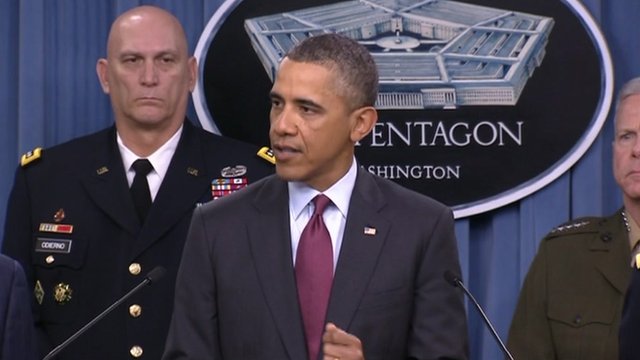 United States strategic planners are carrying out a fundamental reconfiguration of America's military presence throughout the world. The shift came to light in November 2011, when President Barack Obama announced that some 2 500 US Marines would take up permanent positions at a training base on the northern tip of Australia. It was underscored in January 2012 when the president appeared at the Pentagon for the release of an extraordinary guidance document with the striking title 'Sustaining United States Global Leadership: Priorities for the Twenty-First Century Defined'. The revised strategic posture earmarks more US military resources to East Asia in general and the South China Sea littoral in particular. United States strategic planners are carrying out a fundamental reconfiguration of America's military presence throughout the world. The shift came to light in November 2011, when President Barack Obama announced that some 2 500 US Marines would take up permanent positions at a training base on the northern tip of Australia. It was underscored in January 2012 when the president appeared at the Pentagon for the release of an extraordinary guidance document with the striking title 'Sustaining United States Global Leadership: Priorities for the Twenty-First Century Defined'. The revised strategic posture earmarks more US military resources to East Asia in general and the South China Sea littoral in particular.
Read more...
|
- Details
-
Created on Saturday, 31 March 2012 18:03
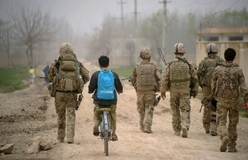 By Alex Strick van Linschoten and Felix Kuehn By Alex Strick van Linschoten and Felix Kuehn
Recent events in Afghanistan have fuelled speculation over the ability of international forces to continue their presence in the country until 2014. In January 2012, four American Marines in Helmand were shown in a video urinating on Afghan corpses. In February, in a case that appears to have been no more than exceedingly poor judgement, copies of the Qur'an were burnt, damaged and treated disrespectfully manner. In March, a US army staff sergeant in the Panjwayi district of Kandahar province is believed to have killed seventeen individuals (many of them women and children) in a single night.
Read more...
|
- Details
-
Created on Tuesday, 28 February 2012 02:00
By Junaid S. Ahmed
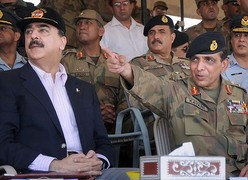
With relations between Pakistan's civilian government and military incredibly tense, speculation is rife in the Pakistani and international media of a looming military takeover. The military is allegedly buoyed by support of the Supreme Court and the country's business and political elite. However, the nature of events is changing at such a fast pace that it is difficult to predict the future.
The tenuous relationship between the government and the military appears to have finally eased somewhat since the government markedly toned down its anti-military rhetoric. Indeed, Prime Minster Yousuf Raza Gilani has extended an olive branch of sorts to the military. He had previously accused Army Chief of Staff, General Ashfaq Parvez Kayani, and the head of Pakistan's principal intelligence agency, Lieutenant General Ahmad Shuja Pasha, of acting unconstitutionally when they expressed their alleged disapproval of the government. Just before Gilani left for the World Economic Forum in Davos in the middle of February, he attempted to smooth over the difficulties with his comment that he wanted to 'dispel the impression that the military leadership acted unconstitutionally or violated rules... The current situation cannot afford conflict among the institutions.'
Read more...
|
|
|
- Details
-
Created on Thursday, 12 July 2012 02:00
By Afro-Middle East Centre
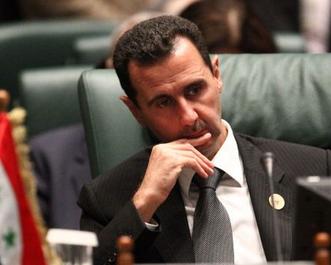 The audacious bombing of the high-level crisis cell meeting of Syrian President Bashar al Asad’s inner-circle last week that left four of Asad’s closest aides dead, had Syrian opposition groups elatedly proclaiming ‘the beginning of the end’ of the Asad regime. This was echoed by much of western media, which loudly forecast the imminent ousting of the Syrian president. The audacious bombing of the high-level crisis cell meeting of Syrian President Bashar al Asad’s inner-circle last week that left four of Asad’s closest aides dead, had Syrian opposition groups elatedly proclaiming ‘the beginning of the end’ of the Asad regime. This was echoed by much of western media, which loudly forecast the imminent ousting of the Syrian president.
Read more...
|
- Details
-
Created on Saturday, 30 June 2012 02:00
By the Afro-Middle East Centre
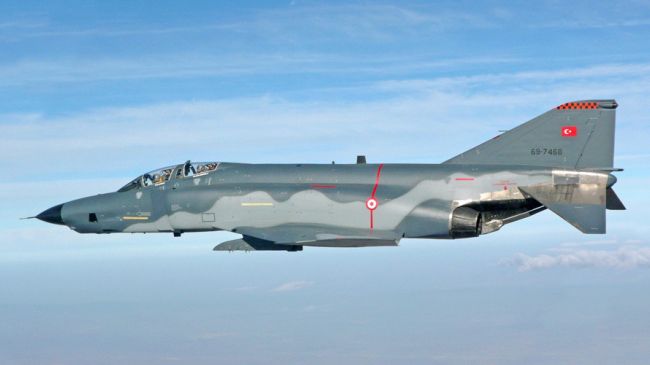 The sixteen month long Syrian uprising hit a critical juncture last Friday, 22 June, when Syria downed an unarmed Turkish F4 Phantom plane. An enraged Turkey maintained the plane was shot down in international airspace after it had only momentarily, and accidentally, strayed into Syrian territory while on a training sortie. Syria, which immediately admitted it had shot down the plane, countered that the plane had been gunned down over Syrian territory and that its forces had acted to protect its sovereignty. Although the incident has potentially changed the rules of engagement between Turkey and Syria, it is by no means a game changer for either. The sixteen month long Syrian uprising hit a critical juncture last Friday, 22 June, when Syria downed an unarmed Turkish F4 Phantom plane. An enraged Turkey maintained the plane was shot down in international airspace after it had only momentarily, and accidentally, strayed into Syrian territory while on a training sortie. Syria, which immediately admitted it had shot down the plane, countered that the plane had been gunned down over Syrian territory and that its forces had acted to protect its sovereignty. Although the incident has potentially changed the rules of engagement between Turkey and Syria, it is by no means a game changer for either.
Read more...
|
- Details
-
Created on Friday, 22 June 2012 10:46
By Abdel Bari Atwan
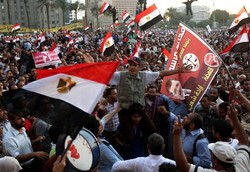 The resolutions and practices of the Supreme Council of the Armed Forces (SCAF) have proven day after day that when it intervened to force President Husni Mubarak to step down, it was not serving the revolution as many (including myself) believed but was rather seizing power in a white revolution that was planned with utmost precision in accordance with scenarios that relied upon a gradual approach to abort the revolution and keep Egypt hostage to American obedience. The resolutions and practices of the Supreme Council of the Armed Forces (SCAF) have proven day after day that when it intervened to force President Husni Mubarak to step down, it was not serving the revolution as many (including myself) believed but was rather seizing power in a white revolution that was planned with utmost precision in accordance with scenarios that relied upon a gradual approach to abort the revolution and keep Egypt hostage to American obedience.
Read more...
|
- Details
-
Created on Thursday, 31 May 2012 00:34
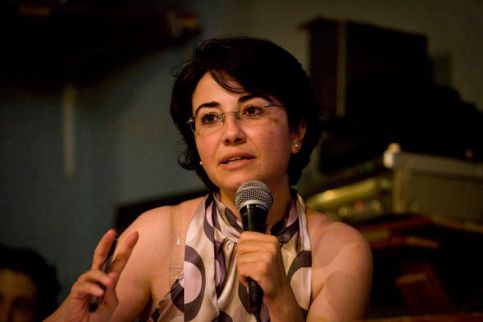
Palestinian citizen of Israel and member of the Israeli Knesset, Haneen Zoabi, called Israel's reference to itself as a Jewish state 'inherently racist' and contested Israel's claims to being a democracy during her recent visit to South Africa hosted by the Afro-MiddleEastCentre(AMEC).
Zoabi was in South Africa from 13 to 22April2012 to address a series of public seminars and participate in meetings with representatives of government, parliament and the African National Congress. She met both international relations deputy ministers, party chief whips in parliament and members of the international relations portfolio committee. She also met key personalities in labour unions, civil society organisations and Palestinian solidarity groups. Zoabi also gave numerous media interviews during her visit.
Read more...
|
- Details
-
Created on Wednesday, 23 May 2012 15:02
By Ali Hussein Bakir
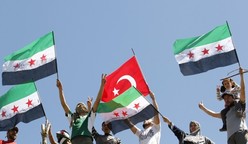 Turkey approaches the Syrian crisis through a series of factors that it considers to be basic axioms. Among these is that the Syrian situation is a regional and international responsibility and not solely that of Turkey but that Turkey may intervene if it regards the Syrian crisis as a Turkish national security risk. Turkey approaches the Syrian crisis through a series of factors that it considers to be basic axioms. Among these is that the Syrian situation is a regional and international responsibility and not solely that of Turkey but that Turkey may intervene if it regards the Syrian crisis as a Turkish national security risk.
Read more...
|
- Details
-
Created on Monday, 30 April 2012 02:00
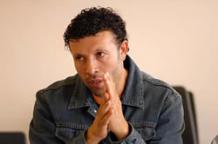 Dr Larbi Sadiki, senior lecturer at Exeter University in the UK, argued that the Middle East and North Africa (MENA) uprisings over the past seventeen months did not appear out of nowhere but that the Arab world has had a history of protests, uprisings, organisation and mobilisation. Dr Larbi Sadiki, senior lecturer at Exeter University in the UK, argued that the Middle East and North Africa (MENA) uprisings over the past seventeen months did not appear out of nowhere but that the Arab world has had a history of protests, uprisings, organisation and mobilisation.
Sadiki was speaking at a seminar organised by the Afro-Middle East Centre on 24 April. Tunisian by birth, Sadiki was in South Africa as a guest of Dajo Associates, a consultancy based in Midrand. He is a prolific writer and an expert on democratisation in the Arab world. His columns on AlJazeera's English website and his sharp analyses of the uprisings of the past year have attracted much attention. Sadiki's seminar addressed the question of the possibilities for democracy in the MENA region.
Read more...
|
- Details
-
Created on Wednesday, 18 April 2012 18:25
By Afro-Middle East Centre
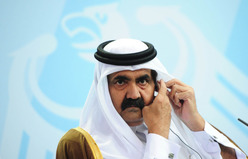
The uprisings that spread across the Middle East North Africa (MENA) region from the beginning of 2011 not only caught global and regional powers unaware, but also upturned seemingly entrenched regimes that had maintained a veneer of strategic stability for western powers. In the ensuing tumult of uprisings that saw a re-shuffling of alliances and power blocs, spaces opened for regional players to jostle to assert their agendas and scramble for ascendancy. In the ensuing scuffle, few would have predicted that tiny Qatar would emerge alongside Iran and Turkey as a significant player. Interestingly, because of the physical diminutiveness of the state with a native population of only 225 000, its strategic influence and potential was previously largely overlooked. This has been to Qatar's advantage, allowing it – and its extensive role in the uprisings – to evade the sort of global scrutiny that its positions and actions might otherwise have attracted.
Read more...
|
- Details
-
Created on Sunday, 01 April 2012 21:55
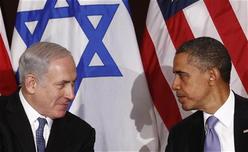 By AlJazeera Centre for Studies By AlJazeera Centre for Studies
Tensions surrounding the Iranian nuclear programme have risen again, but the main determinants of the issue remain largely the same as they had previously been. As before, these determinants will most likely reduce the chances of a war being waged against Iran. New factors – particularly the upcoming elections in the United States – will act as additional restraints preventing the launch of military operations against Iran in 2012.
Read more...
|
- Details
-
Created on Saturday, 17 March 2012 14:33

Address in gaseminar organised by the Afro-Middle East Centre at its HydeParkoffices, Iraqi ambassador to SouthAfrica, HishamAl-Alawi, spoke about the challengeshis country faces inestablishing an indigenous democracy where Iraq is would take full control of state-building in a post-invasion context.
Belligerent threats against Iran began The AMEC seminar, on 14 March 2012, was themed 'The Iraqi experience of democratic transition and establishing good governance'. Al-Alawi also challenged the assumption that Islam and democracy were incompatible. He emphasised, instead, that the principles of democracy were not only consistent with Islam, but were also integral to the faith and embedded in the Qur'anic text.
Read more...
|
- Details
-
Created on Tuesday, 31 January 2012 14:15
By Dr. Mohsen Saleh
 Introduction Introduction
Fear of the Muslim Brotherhood (Ikhwanal-Muslimoon), the leading Islamist movement, has gained unprecedented international prominence since the beginning of the Arab uprisings. Outside official institutions this fear is most commonly found among liberal or ‘leftist’ figures. Western media also reflect common concerns about the Brotherhood that have been expressed by politicians in both Israel and the United States.
Read more...
|
|
|
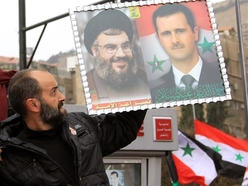 The Syrian uprising has placed Hizbullah in a predicament in terms of its ability to maintain its alliance with the Syrian regime and also enjoy the sympathy of the Arab people, especially that of the Syrians These issues may be understood through a number of indicators. There have been suggestions that Hizbullah is attempting to support the perpetuation of the Syrian regime but is, at the same time, preparing for a post-Asad Syria.
The Syrian uprising has placed Hizbullah in a predicament in terms of its ability to maintain its alliance with the Syrian regime and also enjoy the sympathy of the Arab people, especially that of the Syrians These issues may be understood through a number of indicators. There have been suggestions that Hizbullah is attempting to support the perpetuation of the Syrian regime but is, at the same time, preparing for a post-Asad Syria.
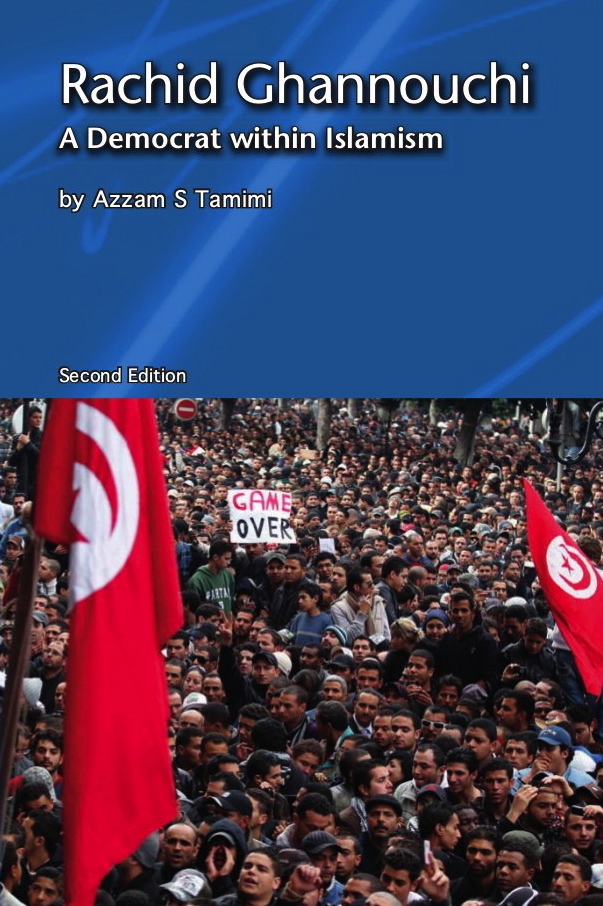
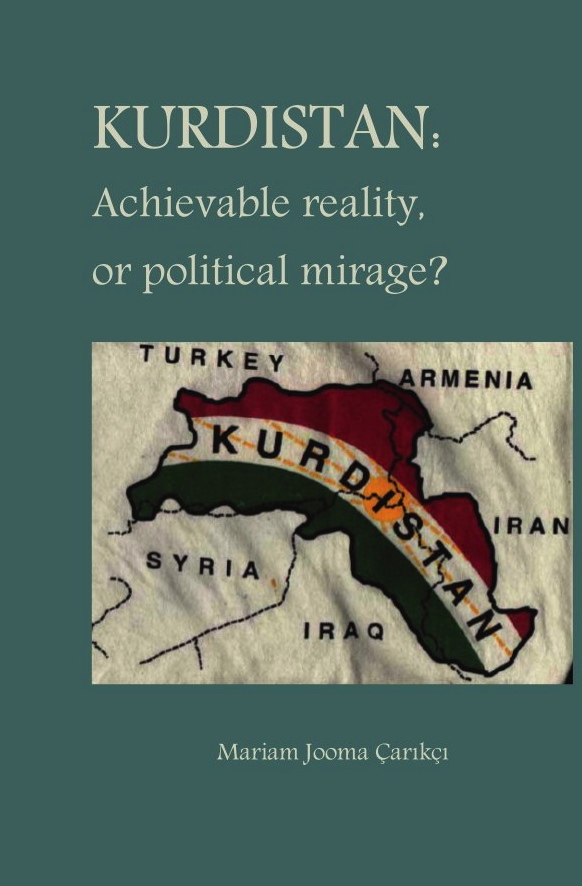
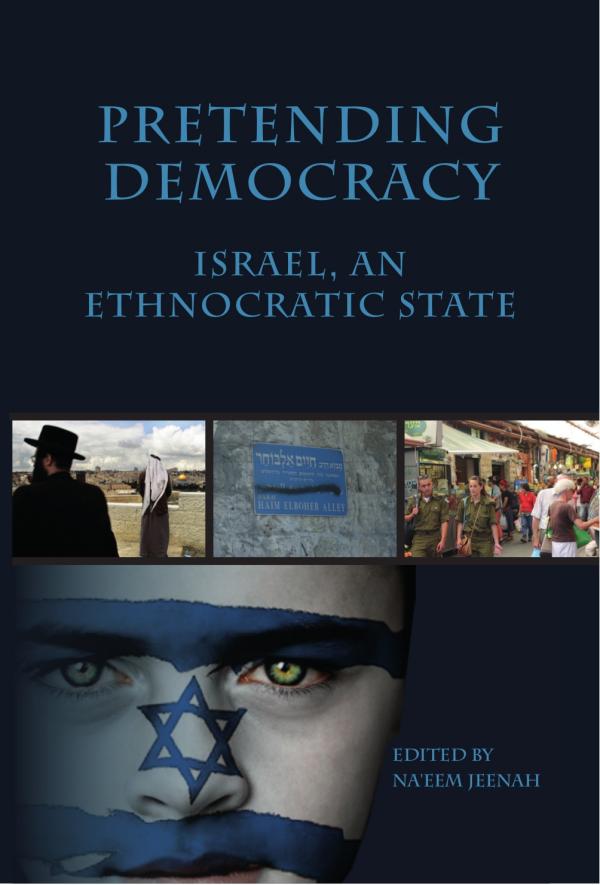


 Events of the past few days in Egypt point to a clash within the political elite; it is, however, not likely to be a dramatic confrontation but a slow war of attrition stretching over the next few years. At the heart of the battle is the attempt by the Muslim Brotherhood and Egypt's first democratically-elected president, Muhammad Mursi, to relocate state executive powers within the presidency and legislative powers within the democratically-elected parliament.
Events of the past few days in Egypt point to a clash within the political elite; it is, however, not likely to be a dramatic confrontation but a slow war of attrition stretching over the next few years. At the heart of the battle is the attempt by the Muslim Brotherhood and Egypt's first democratically-elected president, Muhammad Mursi, to relocate state executive powers within the presidency and legislative powers within the democratically-elected parliament. The use of China's veto over the Syrian crisis demonstrates that it no longer needs to sit on the fence on such international issues. In other words, there is no ambivalence on China’s part; it is decisive in its actions and no longer desires to either please everyone or to provoke anyone. China had previously maintained diplomatic relationships with smaller countries in order to gain support against Taiwan at the United Nations, or more generally to defend China against criticism of its human rights record. China is now recognised as an emerging international power especially after it asserted itself as a major economic force. Its strategic interests have changed and with that its relations with other major powers. These developments have effected a change in its policies and diplomatic conduct.
The use of China's veto over the Syrian crisis demonstrates that it no longer needs to sit on the fence on such international issues. In other words, there is no ambivalence on China’s part; it is decisive in its actions and no longer desires to either please everyone or to provoke anyone. China had previously maintained diplomatic relationships with smaller countries in order to gain support against Taiwan at the United Nations, or more generally to defend China against criticism of its human rights record. China is now recognised as an emerging international power especially after it asserted itself as a major economic force. Its strategic interests have changed and with that its relations with other major powers. These developments have effected a change in its policies and diplomatic conduct.

 Introduction
Introduction


 By Alex Strick van Linschoten and Felix Kuehn
By Alex Strick van Linschoten and Felix Kuehn
 The audacious bombing of the high-level crisis cell meeting of Syrian President Bashar al Asad’s inner-circle last week that left four of Asad’s closest aides dead, had Syrian opposition groups elatedly proclaiming ‘the beginning of the end’ of the Asad regime. This was echoed by much of western media, which loudly forecast the imminent ousting of the Syrian president.
The audacious bombing of the high-level crisis cell meeting of Syrian President Bashar al Asad’s inner-circle last week that left four of Asad’s closest aides dead, had Syrian opposition groups elatedly proclaiming ‘the beginning of the end’ of the Asad regime. This was echoed by much of western media, which loudly forecast the imminent ousting of the Syrian president.
 The resolutions and practices of the Supreme Council of the Armed Forces (SCAF) have proven day after day that when it intervened to force President Husni Mubarak to step down, it was not serving the revolution as many (including myself) believed but was rather seizing power in a white revolution that was planned with utmost precision in accordance with scenarios that relied upon a gradual approach to abort the revolution and keep Egypt hostage to American obedience.
The resolutions and practices of the Supreme Council of the Armed Forces (SCAF) have proven day after day that when it intervened to force President Husni Mubarak to step down, it was not serving the revolution as many (including myself) believed but was rather seizing power in a white revolution that was planned with utmost precision in accordance with scenarios that relied upon a gradual approach to abort the revolution and keep Egypt hostage to American obedience.





 Introduction
Introduction